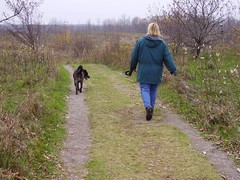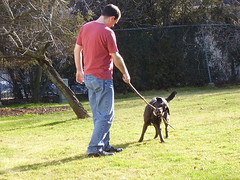You know I never post celebrity gossip, because I pay less than zero attention to any of it. I never even know what the tabloid headlines are referring to. But when Allan sent me this item, well, it just had to go up.
For a time in Brooklyn, we lived next door to actor Kelly McGillis. She frequented the cafe where Allan waited tables, and was sometimes seen there with Jodie Foster. Everyone knew McGillis was gay.
This was no big deal, as half the people in our neighbourhood were gay, and it was New York City in the late 1980s, and no one really cared. But McGillis wasn't out, and seemed to have male beards hanging around, so that was sometimes a topic of conversation.
Today Allan sent me this story: Kelly McGillis has come out.
She's 51 years old and she's an actor and a beautiful woman and she's gay.
It's never too late to be yourself.
I applaud McGillis for taking what was obviously a huge, scary step into the unknown. Get out there and be yourself.
4.30.2009
"i have ploughed and planted, and gathered into barns...and ain't I a woman?"
This week, when Michelle Obama unveiled the statue of Sojourner Truth in Washington, DC, it marked the first time a black woman has been honoured in artwork at the US Capitol Building.
The creator of the sculpture, Artis Lane, was born in Ontario and grew up in Canada. For most of her 81 years, Artis has lived and worked in the US, but when a Canadian-born talent makes good, Canada will claim her as its own, forever.
I liked how Obama connected the pioneering abolitionist and feminist to her own experience.
Sojourner Truth, who endured slavery, is best remembered for her remarkable speech, delivered in 1851 to the Women's Convention in Akron, Ohio. Songs, books and poems have been inspired by the speech, but I think it's best savoured on its own.
Wikipedia's entry on Truth's speech includes a first-hand account from another feminist pioneer, Frances Barker Gage.
The creator of the sculpture, Artis Lane, was born in Ontario and grew up in Canada. For most of her 81 years, Artis has lived and worked in the US, but when a Canadian-born talent makes good, Canada will claim her as its own, forever.
I liked how Obama connected the pioneering abolitionist and feminist to her own experience.
I hope that Sojourner Truth would be proud to see me, a descendant of slaves, serving as the first lady of the United States of America. . . . One can only imagine what Sojourner Truth, an outspoken, tell-it-like-it-is kind of woman...would have to say about this incredible gathering, just looking down on this day, and thinking about the legacy she has left all of us -- because we are all here because, as my husband says time and time again, we stand on the shoulders of giants like Sojourner Truth.
Sojourner Truth, who endured slavery, is best remembered for her remarkable speech, delivered in 1851 to the Women's Convention in Akron, Ohio. Songs, books and poems have been inspired by the speech, but I think it's best savoured on its own.
Well, children, where there is so much racket there must be something out of kilter. I think that 'twixt the negroes of the South and the women at the North, all talking about rights, the white men will be in a fix pretty soon. But what's all this here talking about?
That man over there says that women need to be helped into carriages, and lifted over ditches, and to have the best place everywhere. Nobody ever helps me into carriages, or over mud-puddles, or gives me any best place! And ain't I a woman? Look at me! Look at my arm! I have ploughed and planted, and gathered into barns, and no man could head me! And ain't I a woman? I could work as much and eat as much as a man - when I could get it - and bear the lash as well! And ain't I a woman? I have borne thirteen children, and seen most all sold off to slavery, and when I cried out with my mother's grief, none but Jesus heard me! And ain't I a woman?
Then they talk about this thing in the head; what's this they call it? [member of audience whispers, "intellect"] That's it, honey. What's that got to do with women's rights or negroes' rights? If my cup won't hold but a pint, and yours holds a quart, wouldn't you be mean not to let me have my little half measure full?
Then that little man in black there, he says women can't have as much rights as men, 'cause Christ wasn't a woman! Where did your Christ come from? Where did your Christ come from? From God and a woman! Man had nothing to do with Him.
If the first woman God ever made was strong enough to turn the world upside down all alone, these women together ought to be able to turn it back, and get it right side up again! And now they is asking to do it, the men better let them.
Obliged to you for hearing me, and now old Sojourner ain't got nothing more to say.
Wikipedia's entry on Truth's speech includes a first-hand account from another feminist pioneer, Frances Barker Gage.
cliff cornell jailed for having morals, speaking out
According to peace activist and lawyer James Branum, Cliff Cornell's one-year sentence was longer than the punishment meted out to 94% of US soldiers who go AWOL. It's clear that's because Cliff isn't being punished for desertion: he's being punished for speaking out against the war. Soldiers, check your right to free speech - and your right to your own moral compass - at the door.
This is from the Montreal Gazette; it also ran in the Nanaimo Daily News and the Georgia Straight. If you live in Montreal or BC, now would be an excellent time to write a letter to the editor in response to this story.
The Campaign's media release about Cliff is below.
From the War Resisters Support Campaign:
This is from the Montreal Gazette; it also ran in the Nanaimo Daily News and the Georgia Straight. If you live in Montreal or BC, now would be an excellent time to write a letter to the editor in response to this story.
The Campaign's media release about Cliff is below.
U.S. war deserter, who lived in B.C., sentenced
NANAIMO, B.C. — The U.S. army deserter who spent nearly three years working near here at a grocery store has been sentenced to a year in prison after pleading guilty to desertion.
It ends a saga that began in 2005 when Cliff Cornell walked away from the 1st Battalion, 39th Artillery Regiment in Fort Stewart, Ga., and travelled to Toronto.
After his arrival in Canada, Cornell became active in the War Resisters Support Campaign, something a spokesman for the group said affected his sentence.
"The U.S. military is punishing (him) for speaking out about (his) conscientious objections to the Iraq war," said Ken Marciniec.
Cornell applied to stay in Canada but was deported. In February, he walked across the border, where he was briefly arrested, then released before he turned himself in to the military three days later.
On Tuesday, Cornell tearfully read a prepared statement to the judge, apologizing for leaving his unit. He told the judge that when his regiment was ordered to Iraq he became anxious about being asked to do things that go against his conscience.
"I think when he was most emotional was when he explained what he had in Canada," Branum said.
Cornell, who came from a troubled background in Mountain Home, Ark., grew fond of his adopted West Coast home and hopes to return.
From the War Resisters Support Campaign:
Iraq War resister Cliff Cornell sentenced to 12 months in prison after deportation by Harper government
On Tuesday evening, during a court-martial hearing at Fort Stewart, Georgia, Cliff Cornell was sentenced to 12 months in prison and a bad conduct discharge after publicly expressing his conscientious objection to the Iraq War while in Canada.
Prosecutors claimed that American troops in Iraq saw Cornell on television while Cornell was in Canada. It was argued that those troops felt morale had been undermined because Cornell spoke out about his moral objections to the Iraq War.
“Cliff is being punished for what he believes, for his comments to the press,” said James Branum, the lawyer who represented Cornell during the court-martial. “Because he spoke out against the Iraq War, Cliff’s sentence is harsher than the punishment given to 94% of deserters who are not penalized but administratively discharged.”
Cornell was ordered to leave Canada in February after Immigration Minister Jason Kenney turned down his request to stay in Canada on humanitarian and compassionate grounds. This was despite the Parliament of Canada having passed a motion on June 3, 2008 directing the government to immediately cease deportations of Iraq War resisters. The motion also called on the government to create a program to allow Iraq War resisters to apply for permanent resident status.
Parliament recently reaffirmed its position, adopting the motion for a second time on March 30, 2009.
“Cliff will spend a year in jail because the Harper government refuses to heed the will of Canadians,” said Michelle Robidoux, spokesperson for the War Resisters Support Campaign. “Parliament has voted twice in 10 months to stop these deportations. This reflects the strong consensus among Canadians who want war resisters to stay. Stephen Harper and Jason Kenney want Iraq War resisters punished, but most people in Canada believe Cliff and the other war resisters have done the right thing.”
Part of Cornell’s penalty is a reduction of rank to private (E-1), the lowest level possible and four steps down from his previously held rank of specialist. Cornell will be in a county jail near Fort Stewart for approximately one week until it is determined to which military prison he will be sent.
Last June, a public opinion poll conducted by Angus Reid Strategies found 64% approval for allowing war resisters to stay.
4.29.2009
love in california
Many thanks to Dharma Seeker for sending this inspiring and educational story. Please click through to the original for photos!
The behaviourist and special trainers we worked with thought that our Buster had likely been used as a bait dog. In his case, there was permanent damage, in that he was aggressive to other dogs and it took him a long time to trust new people. But even so, with re-training, tons of love and patience, and a pharmaceutical assist, Buster was able to overcome. The love in his heart was beyond measure.
OK, I didn't think I was going to cry this time, but so much for that. Check out the story.
The story of Daisy Mae the pit bull is like that of any other survivor — she suffered pain, got back on her feet, and is now living a sweeter, more meaningful life because of her experience.
Daisy Mae, formerly part of a dogfighting operation, is now a therapy dog in Santa Barbara making weekly rounds at Cottage Hospital's pediatric ward and Villa Riviera retirement home. Gentle and affectionate, the three-year-old cuddles with the elderly and frail, and even allows small children to hold her tight when they are undergoing painful medical procedures.
Her miracle of rehabilitation mirrors that of the dogs rescued from the Michael Vick fight farm, where only one dog had to be euthanized for being vicious. Of the remaining 47 Vick canines, most have been placed in homes, many with children, other dogs, and cats.
While Daisy Mae and the rehabilitated Vick dogs are changing hearts and minds about the American pit bull terrier, dogfighting continues to be a dark and bloody reality in the United States. According to the national Humane Society, 99.9 percent of fighting dogs are pit bulls. And unlike the Vick case where the football player paid rehab costs, most dogs rescued from fight rings are put down because there are no resources to rescue, evaluate, retrain, and relocate the animals.
Daisy Mae's life these days is a stark contrast to her puppyhood. Found on the streets of Oakland, California, in 2006, she was believed to have served as a "bait" dog in a pit bull fighting operation. Dogs without fighting instincts are used to bring out dominance in other dogs.
The behaviourist and special trainers we worked with thought that our Buster had likely been used as a bait dog. In his case, there was permanent damage, in that he was aggressive to other dogs and it took him a long time to trust new people. But even so, with re-training, tons of love and patience, and a pharmaceutical assist, Buster was able to overcome. The love in his heart was beyond measure.
OK, I didn't think I was going to cry this time, but so much for that. Check out the story.
love in iowa
Less than one hour after the Supreme Court of Iowa's ruling making marriage available to all people took effect, Melisa Keeton and Shelley Wolfe became legally wed.
Story here.
Same-sex couples in Iowa began filing marriage license applications Monday after a state Supreme Court ruling legalizing gay unions took effect, and the first legal gay weddings took place shortly afterward.
Melisa Keeton and Shelley Wolfe were declared "legally married" by pastor Pat Esperanaza during a ceremony in front of Polk County administrative offices in Des Moines. It didn't take long before they were referring to one another as "wife."
"It's not very romantic is it?" Melisa Keeton joked about the location and media attention at the ceremony.
Story here.
"mr. abdelrazik is you."
I have many problems with the Globe and Mail, but I thank them for this excellent, unequivocal editorial supporting the right of Abousfian Abdelrazik to come home to Canada, and decrying the continuing, shameful behaviour of the Harper Government.
Please read.
Please read.
His name is Abousfian Abdelrazik, but it could as easily be Joseph Smith, a Canadian Everyman. He is a citizen denied the right to return to his country by the Canadian government without explanation; for the past year he has languished in Canada's embassy in Khartoum. If Canada can dismiss his citizenship so arbitrarily, the currency of Canadian citizenship is devalued, and the rule of law degraded.
Mr. Abdelrazik, an Everyman? Some Canadians may object. It is not every Canadian who has been publicly labelled an al-Qaeda recruiter by the United States government, as he was in 2006. It is not every Canadian who would be jailed – twice – in Sudan, and at Canada's request.
But any Canadian who leaves this country to work, travel or study may face an accusation of serious criminality abroad. Will Canada insist on due process for them if they are denied it? Will Canada be the one, as in this case, to deny due process and basic fairness?
The alleged terrorist Abousfian Abdelrazik, with his long white beard and the traditional white robe and kufi cap of a practising Muslim, watching television to pass the time behind the embassy's concrete walls, is the test of Canada's commitment to the rule of law and the value of citizenship.
TORTURE BEARS FRUIT
Canada seems quite content to apply the fruits of torture against Mr. Abdelrazik.
In a document filed with the Federal Court, where Mr. Abdelrazik is pressing for the right to return to Canada, the government asked him about his alleged association with Abu Zubaydah. That allegation probably emerged from the U.S. interrogations of Mr. Zubaydah, who is not only a key member of al-Qaeda but also a central figure in the use by the U.S. of torture techniques, having been waterboarded (a near-drowning technique) 80 times. At the very moment when the U.S. is searching its soul over the issue of torture on Mr. Zubaydah, Canada appears willing to stake its case against Mr. Abdelrazik on allegations possibly obtained through the torture of Mr. Zubaydah. And this, after the Minister of Public Safety, Peter Van Loan, said early this month that Canada would not use information obtained under torture even to break up an imminent attack. Sadly, this gap between official Canadian rhetoric and behaviour is not atypical.
THE GOALPOSTS ARE HERE, NO THERE
The government of Canada told Mr. Abdelrazik in 2004 that, as a citizen, he was entitled to an emergency travel document to come home. Unofficially, though, he was blocked. The U.S. put him on its no-fly list in 2005, and an unidentified country put him on a United Nations no-fly list a year later, and he had no passport. Canada refused to issue him a passport and said it could do nothing about the no-fly lists. In classified documents, Canadian security officials warn that the government “should be mindful of the potential reaction of our U.S. counterparts” if Mr. Abdelrazik is allowed to return. When Sudan, which had cleared Mr. Abdelrazik, offered to fly him back to Canada, documents show that Canada said no.
AIRFARE DONATED
Then the Canadian government seemed to clear his name. The Foreign Affairs department confirmed in writing, on April 18, 2008, that it was asking for Mr. Abdelrazik to be removed from the UN no-fly list, after the RCMP and CSIS, Canada's civilian spy agency, said they possessed no “current and substantive information” that Mr. Abdelrazik was a terrorist. If an airline was willing to take him, the government said, he could fly home. But on Dec. 23, 2008, Passport Canada insisted he have a fully paid-for ticket before it would issue an emergency passport; the Canadian government warned that anyone offering him money for a ticket could be charged with supporting terrorism. After more than 160 Canadians chipped in airfare anyway, the government reversed course and declared on April 3 that he is a national security threat. It rejected his request for an emergency passport. Catch-22, anyone?
TRYING TO MAKE SENSE OF IT ALL
Mr. Abdelrazik is on centre stage in a theatre of the absurd. Ottawa's improvised actions are full of contradictions, and unbecoming for a major nation. Ottawa may simply be too stubborn to admit its mistakes on the file. It would rather dig itself in deeper, even allow itself to be tarnished by exploiting the fruits of torture, than admit it's been wrong.
If Mr. Abdelrazik is a terrorist, why doesn't Canada bring him home to face charges under the 2001 Anti-Terrorism Act? If he were a big player in al-Qaeda, why did the U.S. not capture him and take him to one of its secret, offshore jails, or to Guantanamo Bay, Cuba? If he is dangerous, isn't it better to have him in Canada, where he can be watched or charged, than to allow him to roam (he is free to leave the Khartoum embassy), perhaps to turn up in Afghanistan, with the enemy? And why did the Canadian Security Intelligence Service take such an unusual step as to ask publicly for an inquiry into its own role, in a bid to clear its name of allegations that it had Mr. Abdelrazik arrested in Sudan? What goes on here in our democracy?
Governments need to act according to clearly understood rules. That is fundamental to democracy. An accusation, without a lawful process, cannot be allowed to negate citizenship. It is beyond the pale, even in an age of terror, to turn a Canadian into a non-person. Mr. Abdelrazik is you.
4.28.2009
breaking news: war resister cliff cornell sentenced to 12 months, bad conduct discharge
War resister Cliff Cornell, who was forced to leave Canada under threat of deportation, was court martialled today. Cliff was sentenced to 12 months in the brig (military prison), and received a Bad Conduct Discharge.
That makes three war resisters - Cliff Cornell, Robin Long and Daniel Sandate - now serving prison time because the Harper Government refuses to respect the will of Parliament and implement the motion allowing war resisters to stay. James Burmeister also served time in prison, although he left Canada voluntarily.
This is a disgrace, and it has to end.
More details to follow.
That makes three war resisters - Cliff Cornell, Robin Long and Daniel Sandate - now serving prison time because the Harper Government refuses to respect the will of Parliament and implement the motion allowing war resisters to stay. James Burmeister also served time in prison, although he left Canada voluntarily.
This is a disgrace, and it has to end.
More details to follow.
500 people with disabilities chain themselves to white house fence
I received a press release this morning from ADAPT, a network of grassroots disability-rights activists.
Although right now ADAPT is focusing on health-care reform, they are a civil rights and human rights organization, fighting for the rights and dignity of people with disabilities. The members of ADAPT are committed activists who use every means available to them, including civil disobedience.
For many years, their struggle has centered on health-insurance reform. In the US, in many states Medicaid will cover the cost of keeping a person in a nursing home, but will not pay for long-term personal attendants. Often, people with disabilities who could live in their own homes and attend school or work, if they had a personal attendant, are forced to live in nursing homes, because of the disparity in coverage.
This includes children and teenagers, forced to grow up in institutions because of this ridiculous rule. And it is ridiculous: personal attendant care actually would be less expensive!
This morning's press release:
More from ADAPT on the Community Choice Act:
ADAPT has been fighting for the rights of people with disabilities for 25 years. And "people with disabilities" could be all of us. It's the only minority that anyone can join. A slip in the shower, a car accident, a stroke, and "they" are suddenly "me".
Although right now ADAPT is focusing on health-care reform, they are a civil rights and human rights organization, fighting for the rights and dignity of people with disabilities. The members of ADAPT are committed activists who use every means available to them, including civil disobedience.
For many years, their struggle has centered on health-insurance reform. In the US, in many states Medicaid will cover the cost of keeping a person in a nursing home, but will not pay for long-term personal attendants. Often, people with disabilities who could live in their own homes and attend school or work, if they had a personal attendant, are forced to live in nursing homes, because of the disparity in coverage.
This includes children and teenagers, forced to grow up in institutions because of this ridiculous rule. And it is ridiculous: personal attendant care actually would be less expensive!
This morning's press release:
91 Arrested When ADAPT Told Obama Administration Won't Support Inclusion of Long Term Services in Health Care Reform
Ten members of ADAPT met with Obama Administration officials in the White House today, and came away disappointed at the lack of commitment from the administration on inclusion of long term services and supports in health care reform. The administration stated that its only commitment currently is to extend insurance to the people who are uninsured, and that the people in nursing homes and institutions would need to continue to wait until an unspecified time in the future when it is proven that the health care reform worked.
Angered by that response, 500 ADAPT members immediately stretched out along the White House fence, using handcuffs and chains to secure themselves. The Capitol Police ultimately arrested 91 people.
"This is unequivocally a civil rights issue, and we thought we had a civil rights president," said Bruce Darling, ADAPT Organizer from Rochester, New York. "He took the oath of office on the Lincoln bible, and has spoken repeatedly about inclusion and integration. But after today, it seems clear that inclusion doesn't apply to us . . . to the thousands of people trapped for years behind institution and nursing home walls and those of us who are aging with nursing homes looming in our futures. Instead of the promised "change" we are just getting more of the same old thing."
Obama officials in the one hour meeting with ADAPT included Nancy-Ann De Parle, Counselor to the President and Director of the White House Office of Health Reform, aka the President's Health Care Czar; Jeff Crowley, Director of Office of National AIDS Policy and an advisor on the administration’s development of disability policies; Henry Claypool, Director of the Office of Disability in Health and Human Services (HHS); and Mike Hash, coordinator of the HHS-White House reform efforts.
"My heart is broken," said Dawn Russell, ADAPT organizer in Denver, Colorado. "Throughout the Presidential campaign, ADAPT worked hard to educate the Obama campaign. We came to believe in the Obama promise of "change," and we really believed that President Obama was the person who really would "free our people" from being imprisoned in nursing homes and other institutions. Untold numbers of people have died or been abused waiting for their freedom, and we just got told we aren't important enough and so we have to keep waiting."
ADAPT will be making visits to Congress during the week, seeking more co-sponsors for the Community Choice Act, legislation which would give older and disabled Americans the choice to live in their own homes and communities with the services and supports they need. Current Medicaid policy forces people into nursing homes and other institutions in order to get the assistance they need, despite the fact that both the aging and disabled communities have consistently indicated they prefer home and community based services to the generally higher cost institutional services that rob them of control of their lives.
"The President can give millions more people health insurance, but if health care reform doesn't include long term services and supports, then all the health care in the world won't keep those people from being forced into nursing homes against their will," said Linda Anthony, ADAPT Organizer from Pennsylvania.
More from ADAPT on the Community Choice Act:
For decades, people with disabilities, both old and young, have wanted alternatives to nursing homes and other institutions when they need long term services. Our long term care system has a heavy institutional bias. Every state that receives Medicaid MUST provide nursing home services, but community based services are optional. Sixty seven (67%) percent of Medicaid long term care dollars pay for institutional services, while the remaining thirty three (33%) must cover all the community based waivers, optional programs, etc.
Families are in crisis. When support services are needed there are no real choices in the community. Whether a child is born with a disability, an adult has a traumatic injury or a person becomes disabled through the aging process, they overwhelmingly wan t their attendant services provided in their own homes, not nursing homes or other large institutions. People with disabilities and their families will no longer tolerate being forced into selecting institutions. It's time for Real Choice.
The Community Choice Act provides an alternative and will fundamentally change our long term care system and the institutional bias that now exists. Building on the Money Follows the Person concept, the two million Americans currently residing in nursing homes and other institutions would have a choice. In addition, people would not be forced into institutions order to get out on community services; once they are deemed eligible for the institutional services, people with disabilities and their families will be able to choose where and how they receive services. Instead of making a new entitlement, the Community Choice Act makes the existing entitlement more flexible.
The Community Choice Act establishes a national program of community-based attendant services and supports for people with disabilities, regardless of age or disability. This bill would allow the dollars to follow the person, and allow eligible individuals, or their representatives, to choose where they would receive services and supports. Any individual who is entitled to nursing home or other institutional services will now be able to choose where and how these services are provided.
ADAPT has been fighting for the rights of people with disabilities for 25 years. And "people with disabilities" could be all of us. It's the only minority that anyone can join. A slip in the shower, a car accident, a stroke, and "they" are suddenly "me".
Labels:
activism,
disability,
health care,
human rights
4.27.2009
opinion question
How long does a blog go unchanged before you decide, "This person's not blogging anymore"?
I'm updating my "who links to wmtc" blogroll, something I haven't done in a very long time. I'm removing blogs that no longer link to me, updating URLs that have changed, also removing blogs that have been made private. (There were a lot of those, something I found surprising.)
I have a dead blogroll category: still linking but no longer blogging. In your opinion, how long do I wait for someone to update a blog before I move them into that category?
I'm updating my "who links to wmtc" blogroll, something I haven't done in a very long time. I'm removing blogs that no longer link to me, updating URLs that have changed, also removing blogs that have been made private. (There were a lot of those, something I found surprising.)
I have a dead blogroll category: still linking but no longer blogging. In your opinion, how long do I wait for someone to update a blog before I move them into that category?
guantanamo bay prisoners are not legal persons
Omar Khadr is not a person.
He's a human being, of course. But legally, a US Court of Appeals has ruled, Khadr and the approximately 500 other prisoners who have been held illegally by the US, without charges, for more than on seven years, are not "persons".
Note that the Obama administration agrees.
From the Center for Constitutional Rights, emphasis mine.
He's a human being, of course. But legally, a US Court of Appeals has ruled, Khadr and the approximately 500 other prisoners who have been held illegally by the US, without charges, for more than on seven years, are not "persons".
Note that the Obama administration agrees.
From the Center for Constitutional Rights, emphasis mine.
Court Of Appeals Rules Detainees Are Not "Persons" in Guantánamo Torture Suit
Court Agrees with Obama Administration that Detainees Still Have No Constitutional Right Not to Be Tortured
April 24, 2009 Washington, D.C. – In a suit brought by British men imprisoned for two years at Guantanamo, the D.C. Circuit Court of Appeals today reaffirmed its previous ruling that Guantanamo detainees lack the fundamental constitutional right not to be tortured and are not "persons" under a U.S. statute protecting religious freedom.
Last summer, the Supreme Court directed the Court of Appeals to reconsider its previous decision in Rasul v. Rumsfeld, in light of the High Court's decision in Boumediene v. Bush, which recognized the constitutional right of habeas corpus for Guantanamo detainees. The plaintiffs urged the Court of Appeals to follow the clear logic of the Boumediene decision and to recognize both the constitutional rights of the detainees to humane and just treatment and the fact that, under any definition of the word, they are "persons" entitled to religious freedom and dignity as required by law.
"We're not surprised by the Court's ruling, but we are disappointed. The Court failed to follow the Supreme Court's decision in Boumediene and ignored its own prior decisions holding that habeas corpus is not analytically distinct from other fundamental constitutional rights," said Eric L. Lewis, of the Washington, DC law firm of Baach Robinson & Lewis, which is lead counsel for the four men in their lawsuit. "If you get habeas, you should get the other fundamental rights that are guaranteed under the Constitution."
In its first filing on detention and torture under the Obama administration, the Department of Justice filed briefs in March urging the Court of Appeals to reject any constitutional or statutory rights for detainees. The Obama Justice Department further argued that even if such rights were recognized, the Court should rule that the previous administration’s officials who ordered and approved torture and abuse of the plaintiffs should be immune from liability for their actions.
"This is a question about accountability for torture and abuse. It's a disgrace to have a U.S. court stating that Guantánamo detainees are not persons. It would be a shame to have our new President supporting such a position in the Supreme Court. It was bad enough for the Obama Administration to take this position at this stage. We hope that they reconsider," stated Michael Ratner, President of the Center for Constitutional Rights (CCR). "Boumediene acknowledged that the fundamental rights we take for granted apply to persons in U.S. custody at Guantanamo. This decision runs directly counter to that principle."
In its decision today, the Court rejected the detainees' argument that the Boumediene decision compelled the recognition of fundamental constitutional rights for detainees. Instead, the Court of Appeals held that the Supreme Court’s Boumediene decision applied only to the right of habeas corpus, and that no additional constitutional rights could be extended to detainees unless the Supreme Court specifically authorized and approved such rights.
In addition, the Court reaffirmed its decision from last year that detainees are not "persons" for the purposes of the Religious Freedom Restoration Act, which was enacted in 1993 to protect against government actions that unreasonably interfere with religious practices. Last year, Judge Janice Rogers Brown, a member of the Court of Appeals panel who issued the decision today, referred to the Court's holding that detainees are not "persons" as "a most regrettable holding in a case where plaintiffs have alleged high-level U.S. government officials treated them as less than human." This statement is noticeably absent from Judge Brown's substantively identical concurring opinion issued today.
For more information on Rasul v. Rumsfeld, click here.
Labels:
fascist shift,
human rights,
war and peace
4.26.2009
advice, part 8: new ways to emigrate to canada
I've been derelict of my duty. There are some gaping holes in the how-to-move-to-Canada function of this blog, but as Citizenship and Immigration Canada has become the nemesis of the War Resisters Support Campaign - and many other smart, right-thinking people - I've been loathe to post anything that emanates from that Ministry.
But Jason Kenney won't be the face of the CIC forever... and there are some important updates to the How To Move To Canada file.
First, a major, long-anticipated change to the Citizenship Act has gone into effect, changing who is automatically a Canadian citizen. The changes repatriate the so-called "lost Canadians" - people who lost their citizenship through some weird loopholes and rules.
Beginning on April 17 of this year, people living outside Canada whose parents are Canadian are automatically Canadian. If this applies to you and you want to live in Canada, you still have to go through an application process, but you are considered a returning citizen.
However, the changed law (in CIC-speak) "also protects the value of citizenship by limiting citizenship by descent to one generation outside Canada". That is, it denies citizenship to people in other countries whose grandparents were Canadians living in Canada, but whose parents were Canadians living abroad, who then inherited citizenship from their parents.
[Update: I originally posted incorrect information about this. Please see the first comment on this post for clarification.]
The new rules are here, but the piece that's getting the most play is this video.
Some perspectives from The Toronto Star and CBC.
* * * *
Next - and perhaps of more interest to some wmtc readers - there is a new class of immigration to Canada. (Many thanks to Erin for alerting me to this, oh so long ago.) The category is called Canadian Experience.
This is likely a good option for many people who would have once applied as Skilled Workers, as long as you're in a field where you can arrange employment or school before moving.
Here are the FAQs for the Canadian Experience Class. Unfortunately, but unsurprisingly, it contains this:
It is, after all, Jason Kenney's CIC.
But Jason Kenney won't be the face of the CIC forever... and there are some important updates to the How To Move To Canada file.
First, a major, long-anticipated change to the Citizenship Act has gone into effect, changing who is automatically a Canadian citizen. The changes repatriate the so-called "lost Canadians" - people who lost their citizenship through some weird loopholes and rules.
Beginning on April 17 of this year, people living outside Canada whose parents are Canadian are automatically Canadian. If this applies to you and you want to live in Canada, you still have to go through an application process, but you are considered a returning citizen.
However, the changed law (in CIC-speak) "also protects the value of citizenship by limiting citizenship by descent to one generation outside Canada". That is, it denies citizenship to people in other countries whose grandparents were Canadians living in Canada, but whose parents were Canadians living abroad, who then inherited citizenship from their parents.
[Update: I originally posted incorrect information about this. Please see the first comment on this post for clarification.]
The new rules are here, but the piece that's getting the most play is this video.
Some perspectives from The Toronto Star and CBC.
* * * *
Next - and perhaps of more interest to some wmtc readers - there is a new class of immigration to Canada. (Many thanks to Erin for alerting me to this, oh so long ago.) The category is called Canadian Experience.
If you are a temporary foreign worker or a foreign student who graduated in Canada, you often have the qualities to make a successful transition from temporary to permanent residence. You are familiar with Canadian society and can contribute to the Canadian economy. You should have knowledge of English or French and qualifying work experience.
Applying to stay in Canada permanently in your case is simple. You can do this under the Canadian Experience Class. All the guides, information and forms you need to apply are included here.
This is likely a good option for many people who would have once applied as Skilled Workers, as long as you're in a field where you can arrange employment or school before moving.
Here are the FAQs for the Canadian Experience Class. Unfortunately, but unsurprisingly, it contains this:
I had a refugee claim denied. Does the work experience I gained in Canada while waiting for a decision on my application as a refugee make me eligible to apply for permanent residence under the Canadian Experience Class?
No.
It is, after all, Jason Kenney's CIC.
Labels:
citizenship,
immigrating and moving,
war resisters
4.25.2009
bush and clinton to visit toronto: organize now to greet them
In case you haven't heard, a pair of US war criminals will soon visit Toronto. George W. Bush and Bill Clinton will be in Toronto on Friday, May 29, to deliver an invitation-only talk.
Those of us without invitations will be coming out to greet them.
If you want to be part of the organizing efforts for what promises to be a large and spirited protest, come out this Monday night. Details:
Monday, April 27
7:00 p.m. to 9:00 p.m.
Steelworkers Hall
25 Cecil Street (south of College, east of Spadina)
The meeting and protest are organized by the Toronto Coalition to Stop the War.
War Criminals Not Welcome Here! Bush Out - Resisters In!
Those of us without invitations will be coming out to greet them.
If you want to be part of the organizing efforts for what promises to be a large and spirited protest, come out this Monday night. Details:
Monday, April 27
7:00 p.m. to 9:00 p.m.
Steelworkers Hall
25 Cecil Street (south of College, east of Spadina)
The meeting and protest are organized by the Toronto Coalition to Stop the War.
War Criminals Not Welcome Here! Bush Out - Resisters In!
an atheist defends theists: part two: do unto others
Part one here.
I never had any trouble accepting my own atheism. I was never part of a religious community - my childhood synagogue was not my community - and I was never rejected or even criticized for being atheist. As I got more involved with progressive activism, being an atheist was the norm, or at least not at all unusual. But even in very mainstream settings - at work, for example - I never hesitated to say I was an atheist, if it came up in an appropriate context. It's raised a few eyebrows, but nothing more than that.
Reconciling atheism with my Jewish identity was a little more challenging. Once I left home, I stopped going to synagogue completely, feeling it was hypocritical. My family no longer had religious holidays together, so that wasn't an issue. But for some time, I wasn't sure how much Jewish identity I could claim. But I've since made total peace with that. I have absolutely no conflict over it anymore.
Many people are made to suffer when they leave their religion. My own partner, as you may know, was shunned by his family - disowned - when he left the church. (And the circumstances surrounding that decidedly un-Christian rejection make it even worse: he was a teenager, and it was not long after his father's suicide.) So believe me, I'm sensitive to what the consequences of leaving a religion can be.
But much of the angst I've seen on this subject seems more about the pressure to conform, and the fear of independence. I've read many blog posts about coming out as an atheist, how it's "not done" where the person lives, the fear of rejection, the fear of "what people will think".
But part of becoming a healthy adult is learning to stop caring what others think of you, learning to accept yourself and be comfortable in your own skin. For some people, this means exchanging the fishbowl of small-town life for the anonymity of a big city, where it's easier to be yourself. That's not only about freedom of religion and non-religion. It's about the personal freedom to be yourself.
* * * *
Lately I've been disappointed to see much of the behaviour I dislike in believers among my fellow non-believers.
As you know, I hate proselytizing no matter who is doing it. Religion is a very personal matter. One either feels faith or one does not. The idea of talking someone into adopting a religion strikes me as absurd. It's also arrogant and intrusive. It is simply not your business!
I feel the same way about trying to talk someone out of belief in god. I would no more try to talk someone out of their religion than I would try to convince someone not to have children, or to change their sexual orientation. Whether the trait is innate or chosen is irrelevant here. My point is it's deeply personal, and not subject to debate.
I love my childfree life, and I wouldn't trade it for anything in the world, but if a person wants to have children, then they do, and I have no business trying to convince him or her otherwise. Likewise, because I didn't want children, nothing anyone could say about the joys of parenting or what a good mother I would supposedly make made me stop taking my birth control pills. For me, religion is like that.
I don't understand people trying to prove or disprove the existence of god. Neither can be proven. Belief in god isn't an intellectual exercise or a theorem that can be reasoned out on a chalkboard. None of us know - not the most pious believer nor the most adamant atheist.
I find the concept of god a ridiculous fiction, to me it seems quite clearly an invention of humans. But I am not so arrogant as to pretend I know there is no god. People who claim they know god exists are arrogantly assuming that their own beliefs can be generalized to us all. But so are people who claim they know god does not exist. There's a world of difference between "I believe" and "I know".
* * * *
Another anti-religion theme that atheists throw around is "religion is a crutch" and "religious people are weak".
"Crutch" is a pejorative way of saying "support". We all need supports. Some of us find support through family and friends, through art, through sports, through a philosophy or worldview. For some people, religion is part of their support, perhaps the most important one. So? It's a tough world out there, full of disappointment and pain. If religion helps someone get through life without hurting themselves or others, why is that wrong? It's better than many other crutches people use: heroin, alcohol, violence, power trips, what have you.
If you see yourself as without need of crutch or support, then good for you. But one, I doubt it's true. And two, we're not all the same. We cope as we can.
If religious people are weak, was Martin Luther King, Jr. weak?
Which brings me to another reason atheists should be tolerant of theists. As part of the community of people who work for social justice, I've had the pleasure and privilege to work alongside many religious people. Catholics, Jews, Quakers, Muslims, Mennonites, Unitarians, Episcopalians, Anglicans - all engaged in the same struggles, working alongside atheists for the same goals. Often the religious activists have been the most committed activists I have known, models for us all.
Progressive social movements are often inextricable from faith movements. The US civil rights movement is perhaps the most obvious example, but there are many. Dorothy Day and the Catholic Worker movement. Oscar Romero and many others practicing Liberation Theology. Sister Helen Prejean, a hero of the death penalty abolition movement. Tommy Douglas was a minister. That's a short list of thousands. And of course, every peace movement the world has ever known has been supported by people of faith.
I've heard it said that this still doesn't mean religion can be a force for positive change, because all those people could have done their work without the religious component. But that misses the point. These people felt compelled to work for social change because of their religion. Their activism was inextricable from their religion. That was as true for Martin Luther King, Jr. as it is for all the ordinary people whose names we don't know, who carry on the work of social justice, and who also pray.
* * * *
I think we have to draw a distinction between organized religion and people's spirituality. The institutions of organized religion have caused tremendous pain and suffering in the world. They have perpetuated racism, sexism, homophobia and anti-Semitism. They have justified and financed slavery, slaughter and genocide. They have provided cover for serial child sexual abuse. They have oppressed women. They have robbed people of their children and robbed children of their cultures.
These institutions are rich, powerful, thoroughly corrupt and hypocritical beyond measure. But the institutions are not the same as individual peoples' belief.
Most people who believe in some sort of faith aren't harming anyone with their beliefs. Many are, of course. Fundamentalists attempting to refashion governments and countries in their image are an obvious destructive force, and demand our steadfast resistance. But the average, mainstream person who believes in god - who is she hurting? If she takes comfort from religion, if her faith guides her and soothes her, if it helps her make sense of an insane world, if it makes her feel part of something larger than herself, who is she hurting? And more importantly, who are we to judge?
Those of us who fight against bigotry in all its forms - sexism, homophobia, racism, Islamophobia, anti-Semitism - ought to know better. Bigotry against people who believe in god is bigotry. If we atheists look down on theists, aren't we just as bad as the holier-than-thou religious people who look down on us?
I think we should avoid sweeping generalizations and stereotypes of any people. And we should stop trying to prove we're right.
I never had any trouble accepting my own atheism. I was never part of a religious community - my childhood synagogue was not my community - and I was never rejected or even criticized for being atheist. As I got more involved with progressive activism, being an atheist was the norm, or at least not at all unusual. But even in very mainstream settings - at work, for example - I never hesitated to say I was an atheist, if it came up in an appropriate context. It's raised a few eyebrows, but nothing more than that.
Reconciling atheism with my Jewish identity was a little more challenging. Once I left home, I stopped going to synagogue completely, feeling it was hypocritical. My family no longer had religious holidays together, so that wasn't an issue. But for some time, I wasn't sure how much Jewish identity I could claim. But I've since made total peace with that. I have absolutely no conflict over it anymore.
Many people are made to suffer when they leave their religion. My own partner, as you may know, was shunned by his family - disowned - when he left the church. (And the circumstances surrounding that decidedly un-Christian rejection make it even worse: he was a teenager, and it was not long after his father's suicide.) So believe me, I'm sensitive to what the consequences of leaving a religion can be.
But much of the angst I've seen on this subject seems more about the pressure to conform, and the fear of independence. I've read many blog posts about coming out as an atheist, how it's "not done" where the person lives, the fear of rejection, the fear of "what people will think".
But part of becoming a healthy adult is learning to stop caring what others think of you, learning to accept yourself and be comfortable in your own skin. For some people, this means exchanging the fishbowl of small-town life for the anonymity of a big city, where it's easier to be yourself. That's not only about freedom of religion and non-religion. It's about the personal freedom to be yourself.
* * * *
Lately I've been disappointed to see much of the behaviour I dislike in believers among my fellow non-believers.
As you know, I hate proselytizing no matter who is doing it. Religion is a very personal matter. One either feels faith or one does not. The idea of talking someone into adopting a religion strikes me as absurd. It's also arrogant and intrusive. It is simply not your business!
I feel the same way about trying to talk someone out of belief in god. I would no more try to talk someone out of their religion than I would try to convince someone not to have children, or to change their sexual orientation. Whether the trait is innate or chosen is irrelevant here. My point is it's deeply personal, and not subject to debate.
I love my childfree life, and I wouldn't trade it for anything in the world, but if a person wants to have children, then they do, and I have no business trying to convince him or her otherwise. Likewise, because I didn't want children, nothing anyone could say about the joys of parenting or what a good mother I would supposedly make made me stop taking my birth control pills. For me, religion is like that.
I don't understand people trying to prove or disprove the existence of god. Neither can be proven. Belief in god isn't an intellectual exercise or a theorem that can be reasoned out on a chalkboard. None of us know - not the most pious believer nor the most adamant atheist.
I find the concept of god a ridiculous fiction, to me it seems quite clearly an invention of humans. But I am not so arrogant as to pretend I know there is no god. People who claim they know god exists are arrogantly assuming that their own beliefs can be generalized to us all. But so are people who claim they know god does not exist. There's a world of difference between "I believe" and "I know".
* * * *
Another anti-religion theme that atheists throw around is "religion is a crutch" and "religious people are weak".
"Crutch" is a pejorative way of saying "support". We all need supports. Some of us find support through family and friends, through art, through sports, through a philosophy or worldview. For some people, religion is part of their support, perhaps the most important one. So? It's a tough world out there, full of disappointment and pain. If religion helps someone get through life without hurting themselves or others, why is that wrong? It's better than many other crutches people use: heroin, alcohol, violence, power trips, what have you.
If you see yourself as without need of crutch or support, then good for you. But one, I doubt it's true. And two, we're not all the same. We cope as we can.
If religious people are weak, was Martin Luther King, Jr. weak?
Which brings me to another reason atheists should be tolerant of theists. As part of the community of people who work for social justice, I've had the pleasure and privilege to work alongside many religious people. Catholics, Jews, Quakers, Muslims, Mennonites, Unitarians, Episcopalians, Anglicans - all engaged in the same struggles, working alongside atheists for the same goals. Often the religious activists have been the most committed activists I have known, models for us all.
Progressive social movements are often inextricable from faith movements. The US civil rights movement is perhaps the most obvious example, but there are many. Dorothy Day and the Catholic Worker movement. Oscar Romero and many others practicing Liberation Theology. Sister Helen Prejean, a hero of the death penalty abolition movement. Tommy Douglas was a minister. That's a short list of thousands. And of course, every peace movement the world has ever known has been supported by people of faith.
I've heard it said that this still doesn't mean religion can be a force for positive change, because all those people could have done their work without the religious component. But that misses the point. These people felt compelled to work for social change because of their religion. Their activism was inextricable from their religion. That was as true for Martin Luther King, Jr. as it is for all the ordinary people whose names we don't know, who carry on the work of social justice, and who also pray.
* * * *
I think we have to draw a distinction between organized religion and people's spirituality. The institutions of organized religion have caused tremendous pain and suffering in the world. They have perpetuated racism, sexism, homophobia and anti-Semitism. They have justified and financed slavery, slaughter and genocide. They have provided cover for serial child sexual abuse. They have oppressed women. They have robbed people of their children and robbed children of their cultures.
These institutions are rich, powerful, thoroughly corrupt and hypocritical beyond measure. But the institutions are not the same as individual peoples' belief.
Most people who believe in some sort of faith aren't harming anyone with their beliefs. Many are, of course. Fundamentalists attempting to refashion governments and countries in their image are an obvious destructive force, and demand our steadfast resistance. But the average, mainstream person who believes in god - who is she hurting? If she takes comfort from religion, if her faith guides her and soothes her, if it helps her make sense of an insane world, if it makes her feel part of something larger than herself, who is she hurting? And more importantly, who are we to judge?
Those of us who fight against bigotry in all its forms - sexism, homophobia, racism, Islamophobia, anti-Semitism - ought to know better. Bigotry against people who believe in god is bigotry. If we atheists look down on theists, aren't we just as bad as the holier-than-thou religious people who look down on us?
I think we should avoid sweeping generalizations and stereotypes of any people. And we should stop trying to prove we're right.
Labels:
atheism,
bigotry,
miscellaneous blather,
personal
4.24.2009
breaking news: negative decision in hinzman appeal of h&c
We've just heard that the federal court has handed down a negative decision in Jeremy Hinzman's case. That is, the judge upheld the negative decision in the Hinzmans' Humanitarian & Compassionate application.
The bad news comes late on a Friday, as usual, locking us out of an immediate media response.
This is a real blow, even more so because the decision was rendered by the same judge who recently granted Kim Rivera leave to appeal, Justice James Russell.
At this time, we don't know what legal options remain for Jeremy and Nga. Our job is to get the word out and keep the pressure on.
Today, Jason Kenney was confronted by mothers and children at Sick Kids Hospital in Toronto. He was there for some government PR, but he got nailed about the case of a Korean woman who is facing deportation.
Tell it!
Let's tell it, too. Canadians are sick to death of this minority government forcing their will on the rest of us. We need action and we need it now! Parliament has now voted TWICE to let the war resisters stay in Canada and it's high time the government respected the will of Parliament. Is Canada a democracy or isn't it?
Speak out! Speak out loudly! Demand that Stephen Harper and Jason Kenney respect democracy!
There's a lot more you can do, if you are so inclined. There are several ways to get involved: contact me for details. But now, right now, call, write, email. Go to it!
The bad news comes late on a Friday, as usual, locking us out of an immediate media response.
This is a real blow, even more so because the decision was rendered by the same judge who recently granted Kim Rivera leave to appeal, Justice James Russell.
At this time, we don't know what legal options remain for Jeremy and Nga. Our job is to get the word out and keep the pressure on.
Today, Jason Kenney was confronted by mothers and children at Sick Kids Hospital in Toronto. He was there for some government PR, but he got nailed about the case of a Korean woman who is facing deportation.
Minister agrees to review mother's deportation>
Mothers and children confront Jason Kenney at Sick Kids media conference
Immigration Minister Jason Kenney agreed today to review the deportation of a Korean woman after a dozen determined mothers and children confronted him in a hospital cafeteria.
"The mothers of the community are here to ask if the hearts of mothers can move the mind of a politician," said Marie Foley, holding her daughter Camille.
Camille is the best friend of Eugene, the 8-year-old Canadian born daughter of Kim Suk Yeung, who is scheduled to be deported to Korean Saturday night.
"This is really urgent," Foley told Kenney after an unrelated news conference at the Hospital for Sick Children. "There is a Canadian child in jail. We don't jail Canadian children."
Kim has been in the Immigration holding centre on Rexdale Blvd. since Feb. 18 after losing her refugee appeal. Eugene, a Grade 2 student at Dovercourt junior public school, joined her there Wednesday night.
When Kenney told the Davenport mothers he had no information on the case, they responded his office had received hundreds of letters and emails since March.
Tell it!
Let's tell it, too. Canadians are sick to death of this minority government forcing their will on the rest of us. We need action and we need it now! Parliament has now voted TWICE to let the war resisters stay in Canada and it's high time the government respected the will of Parliament. Is Canada a democracy or isn't it?
Speak out! Speak out loudly! Demand that Stephen Harper and Jason Kenney respect democracy!
There's a lot more you can do, if you are so inclined. There are several ways to get involved: contact me for details. But now, right now, call, write, email. Go to it!
Labels:
activism,
canadian politics,
war resisters
an atheist defends theists: part one: where i'm coming from
I've never blogged about my atheism before, because I've never felt the need. Just as I've never blogged about not having children. If I wrote this blog when I was in my 20s and early 30s, when I was still defending and justifying my decision, I'm sure it would have been a frequent topic. (In those pre-internet days, I wrote essays and tried to get them published; these days it would be on wmtc.) Similarly, if I were still a teenager and young adult coming to grips with my atheism, I'm sure I'd be blogging about it. But being an atheist is a deep part of my identity, not something in question or in flux. I've never had the need to hash it out in public.
Lately this has changed - not because my atheism has changed, but because I find myself getting annoyed at the arrogance, self-righteousness and proselytizing of some atheists. I get extra annoyed when I see atheists adopting some of the worst qualities of some theists. And I find myself in the odd position of defending believers from the generalizations and negative characterizations of non-believers.
First things first. I declare myself totally and completely without religion or spirituality. I am 100% a-theistic.
Here's a bit about when that happened and the path I followed getting there.
* * * *
I am Jewish. My family heritage and ethnicity is Jewish. I was raised as a Jew, in an observant, reform household. Like many families from many different faiths, my family practiced our own mix of which rituals we observed and which we didn't. In our case, that mix was controlled by the person who controlled everything in our lives, my father.
On Friday nights we lit candles and said the prayers over candles, bread and wine, and had a special meal. We attended services at our synagogue almost every Friday night. I went to Hebrew School, and was a Bat Mitzvah. My older siblings were both Bar and Bat Mitzvah. We observed all the major Jewish holidays, kept "kosher for Passover," and several other traditions.
As a child, I believed in god as a kind of super-parent. During Yom Kippur, the Day of Atonement, I prayed to be forgiven, and worried about what might happen if god didn't forgive me. My own father was brutally unforgiving, and the god I was taught about seemed even worse, so I had quite a bit of childhood anxiety over whether or not my sins - whatever they were - would be forgiven and whether I would be "inscribed in the book of life". My mother and I have since talked about how horrible this is, as what sin could a normal small child have possibly committed. But I was truly afraid, and as a consequence, deeply repentant.
For young people post Bat or Bar Mitzvah, our synagogue continued classes towards a ceremony called "confirmation". I don't know if this is an official part of Judaism, or something our temple cooked up to try to retain young people's participation. I went to one class and told my parents I wanted to quit. After some negotiating, I got out.
The class was comparative religion. We discussed the main themes of the other world religions, and attended several different kinds of services. It seemed pretty clear to me that the propaganda my father had fed us about Judaism was a bunch of crap. All religions taught pretty much the same things, and which you landed in was usually an accident of birth. Claiming specialness because of being Jewish was as ridiculous as claiming specialness over being white.
I was a teenager, and having a lot of problems at home. It's tempting to think I was rejecting my father through a rejection of his religion, that breaking away from Judaism was a substitute for what I couldn't yet do, but would later need to do, break away from a controlling parent.
But that theory breaks down when you consider that my father was a leftist. He was much more political than he was religious. I was political very early in life, and our leftist politics was something my father and I always had in common. Even when we had almost no relationship at all, we could always talk politics. It was one of our steadfast common grounds.
If I were only rejecting my father, why didn't I become conservative? Because becoming an atheist wasn't about rejecting my father. It was about finding what was inside me. Who I was.
* * * *
Still in high school and starting to explore my own philosophies and guidelines for living, I started reading about atheism and collecting atheist quotes. Clarence Darrow - still a hero of mine - was a favourite. I liked this one:
But I kept this one on my bulletin board:
In university, I took a sociology class on religion - its origins and social function. I've always loved mythology, and I started to see religion in that context: a means of answering questions about life and death, a way to exercise control of society, like a form of government, perhaps a universal need of evolving humans. (Later on, I would discover Joseph Campbell through a Bill Moyers series on PBS, and saw Christianity through a mythological framework, too. Ever since, I've wondered how anyone can accept the story of Jesus literally, rather than as a familiar and oft-repeated myth that is found in so many different cultures.)
So, now out of the madhouse of my teenage years, and with this new sociological perspective, I started to wonder if perhaps I needed to reject organized Judaism but not religion entirely.
I had been raised with the concept of god as a giant father figure in the sky, declaring "Thou Shalt Not," and punishing us for invisible infractions. I had quite enough of that in my life. As it was, my entire coming of age would be breaking away from a controlling, bullying, abusive father, so perhaps I only needed to break away from a similarly fashioned deity?
In that spirit, I set out to sample some other religions and see if any of them were more suitable for me. Any mainstream Christianity was utterly out of the question, although along the way I discovered I loved gospel music. Islam was out for the same reasons Judaism and Christianity don't work. Buddhism seemed cool, but I knew it could never be more than play-acting for me. It sounds nice, but I couldn't really believe it. Plus, it seemed anti-activist, contrary to working for change and social justice.
The closest I came was the Quakers. I went to a few meetings and was very impressed. But I had to face it: Quakers are Christian. Although they are egalitarian, non-judgemental, democratic, and work tirelessly for social justice in the most committed way, they are compelled to do this through belief in Christ. (More on this concept in part two.) And I could never pretend that Christ has any part in my life.
When I was a little older, I met people who adopted alternative, non-mainstream religions, like Wicca or Paganism. I think this is cool as a matter of personal choice, but I was never drawn to it in the slightest way. I'm not looking for anything to replace conventional religions. It doesn't matter what the religion is called, or how it expresses itself, how open it is, or how ancient, or how unconventional. I simply don't need or want any of it.
Around the time I realized I couldn't be Quaker, I started realizing that I wasn't rejecting organized religion - or at least not only that. I was rejecting the entire concept of a creator, a supreme being, a deity.
I read a bit about existentialism, and suddenly it all clicked. Please leave aside complex philosophical debates among various branches of existentialist philosophy. Those have about as much relevance to my journey as debates about full-body baptism and angels dancing on pinheads. The point, for me, is that I was introduced to a way of looking at the world that used no organizing principle of religion, fate, destiny or order.
I had the great Ah-Ha Experience of recognition. We live in a meaningless universe governed by random chance. Our lives are the product of our own choices, and of random luck. God is a human-made construct. These concepts felt so right, so deeply true, to me, that I instantly knew who I was. I was an atheist, an existentialist, and a leftist.
Note that I say I knew who I was. I do not say I knew The Truth. I know only the truth for me. The lens through which I see the world.
Lately this has changed - not because my atheism has changed, but because I find myself getting annoyed at the arrogance, self-righteousness and proselytizing of some atheists. I get extra annoyed when I see atheists adopting some of the worst qualities of some theists. And I find myself in the odd position of defending believers from the generalizations and negative characterizations of non-believers.
First things first. I declare myself totally and completely without religion or spirituality. I am 100% a-theistic.
Here's a bit about when that happened and the path I followed getting there.
* * * *
I am Jewish. My family heritage and ethnicity is Jewish. I was raised as a Jew, in an observant, reform household. Like many families from many different faiths, my family practiced our own mix of which rituals we observed and which we didn't. In our case, that mix was controlled by the person who controlled everything in our lives, my father.
On Friday nights we lit candles and said the prayers over candles, bread and wine, and had a special meal. We attended services at our synagogue almost every Friday night. I went to Hebrew School, and was a Bat Mitzvah. My older siblings were both Bar and Bat Mitzvah. We observed all the major Jewish holidays, kept "kosher for Passover," and several other traditions.
As a child, I believed in god as a kind of super-parent. During Yom Kippur, the Day of Atonement, I prayed to be forgiven, and worried about what might happen if god didn't forgive me. My own father was brutally unforgiving, and the god I was taught about seemed even worse, so I had quite a bit of childhood anxiety over whether or not my sins - whatever they were - would be forgiven and whether I would be "inscribed in the book of life". My mother and I have since talked about how horrible this is, as what sin could a normal small child have possibly committed. But I was truly afraid, and as a consequence, deeply repentant.
For young people post Bat or Bar Mitzvah, our synagogue continued classes towards a ceremony called "confirmation". I don't know if this is an official part of Judaism, or something our temple cooked up to try to retain young people's participation. I went to one class and told my parents I wanted to quit. After some negotiating, I got out.
The class was comparative religion. We discussed the main themes of the other world religions, and attended several different kinds of services. It seemed pretty clear to me that the propaganda my father had fed us about Judaism was a bunch of crap. All religions taught pretty much the same things, and which you landed in was usually an accident of birth. Claiming specialness because of being Jewish was as ridiculous as claiming specialness over being white.
I was a teenager, and having a lot of problems at home. It's tempting to think I was rejecting my father through a rejection of his religion, that breaking away from Judaism was a substitute for what I couldn't yet do, but would later need to do, break away from a controlling parent.
But that theory breaks down when you consider that my father was a leftist. He was much more political than he was religious. I was political very early in life, and our leftist politics was something my father and I always had in common. Even when we had almost no relationship at all, we could always talk politics. It was one of our steadfast common grounds.
If I were only rejecting my father, why didn't I become conservative? Because becoming an atheist wasn't about rejecting my father. It was about finding what was inside me. Who I was.
* * * *
Still in high school and starting to explore my own philosophies and guidelines for living, I started reading about atheism and collecting atheist quotes. Clarence Darrow - still a hero of mine - was a favourite. I liked this one:
I do not consider it an insult, but rather a compliment to be called an agnostic. I do not pretend to know where many ignorant men are sure.
But I kept this one on my bulletin board:
I don't believe in god because I don't believe in Mother Goose.
In university, I took a sociology class on religion - its origins and social function. I've always loved mythology, and I started to see religion in that context: a means of answering questions about life and death, a way to exercise control of society, like a form of government, perhaps a universal need of evolving humans. (Later on, I would discover Joseph Campbell through a Bill Moyers series on PBS, and saw Christianity through a mythological framework, too. Ever since, I've wondered how anyone can accept the story of Jesus literally, rather than as a familiar and oft-repeated myth that is found in so many different cultures.)
So, now out of the madhouse of my teenage years, and with this new sociological perspective, I started to wonder if perhaps I needed to reject organized Judaism but not religion entirely.
I had been raised with the concept of god as a giant father figure in the sky, declaring "Thou Shalt Not," and punishing us for invisible infractions. I had quite enough of that in my life. As it was, my entire coming of age would be breaking away from a controlling, bullying, abusive father, so perhaps I only needed to break away from a similarly fashioned deity?
In that spirit, I set out to sample some other religions and see if any of them were more suitable for me. Any mainstream Christianity was utterly out of the question, although along the way I discovered I loved gospel music. Islam was out for the same reasons Judaism and Christianity don't work. Buddhism seemed cool, but I knew it could never be more than play-acting for me. It sounds nice, but I couldn't really believe it. Plus, it seemed anti-activist, contrary to working for change and social justice.
The closest I came was the Quakers. I went to a few meetings and was very impressed. But I had to face it: Quakers are Christian. Although they are egalitarian, non-judgemental, democratic, and work tirelessly for social justice in the most committed way, they are compelled to do this through belief in Christ. (More on this concept in part two.) And I could never pretend that Christ has any part in my life.
When I was a little older, I met people who adopted alternative, non-mainstream religions, like Wicca or Paganism. I think this is cool as a matter of personal choice, but I was never drawn to it in the slightest way. I'm not looking for anything to replace conventional religions. It doesn't matter what the religion is called, or how it expresses itself, how open it is, or how ancient, or how unconventional. I simply don't need or want any of it.
Around the time I realized I couldn't be Quaker, I started realizing that I wasn't rejecting organized religion - or at least not only that. I was rejecting the entire concept of a creator, a supreme being, a deity.
I read a bit about existentialism, and suddenly it all clicked. Please leave aside complex philosophical debates among various branches of existentialist philosophy. Those have about as much relevance to my journey as debates about full-body baptism and angels dancing on pinheads. The point, for me, is that I was introduced to a way of looking at the world that used no organizing principle of religion, fate, destiny or order.
I had the great Ah-Ha Experience of recognition. We live in a meaningless universe governed by random chance. Our lives are the product of our own choices, and of random luck. God is a human-made construct. These concepts felt so right, so deeply true, to me, that I instantly knew who I was. I was an atheist, an existentialist, and a leftist.
Note that I say I knew who I was. I do not say I knew The Truth. I know only the truth for me. The lens through which I see the world.
Labels:
atheism,
miscellaneous blather,
personal
4.23.2009
"it's a tremendous embarrassment, what we’ve done to this young man"
The Federal Court has ruled that the Harper Government must seek the repatriation of Omar Khadr.
Harper - unbelievably, but for him, completely believably - will seek to overturn the decision.
This government doesn't give a crap about human rights. Especially if Muslims are involved. From CBC:
Harper - unbelievably, but for him, completely believably - will seek to overturn the decision.
This government doesn't give a crap about human rights. Especially if Muslims are involved. From CBC:
Prime Minister Stephen Harper is required to press the United States for the return of Omar Khadr to Canada from Guantanamo Bay to "comply with a principle of fundamental justice," a Federal Court judge ruled Thursday.
Unmoved, Harper said the government may try to overturn the judge's decision on Khadr, who is accused of killing a U.S. army soldier with a hand grenade during a gunfight in Afghanistan in 2002.
"The facts, in our judgment, have not changed," he told MPs during question period. "We will be looking at the decision very carefully and, obviously, considering an appeal."
Justice James O'Reilly ruled in favour of Khadr's charter challenge of the Canadian government's decision not to request his repatriation from the U.S. detention centre in Guantanamo Bay, Cuba.
"The ongoing refusal of Canada to request Mr. Khadr's repatriation to Canada offends a principle of fundamental justice and violates Mr. Khadr's rights," O'Reilly said in his 43-page decision.
"To mitigate the effect of that violation, Canada must present a request to the United States for Mr. Khadr's repatriation as soon as practicable."
The CBC’s Rosemary Barton, reporting from Ottawa, said the government has long maintained that because of the seriousness of the charges, the Toronto-born Khadr should face military proceedings in the United States.
In Thursday's decision, the judge pointed out that Khadr is the last citizen of any Western country held at Guantanamo. Other countries have repatriated their citizens.
Khadr's lawyers argued the Canadian government was complicit in the detainee's alleged torture and mistreatment while in U.S. custody and obliged under international law to demand his return.
Khadr, now 22, was 15 at the time he was detained in Afghanistan.
Harper has steadfastly refused to get involved.
Liberal Leader Michael Ignatieff, NDP Leader Jack Layton and Bloc Québécois Leader Gilles Duceppe have sent a letter to Harper and U.S. President Barack Obama calling for Khadr's repatriation and for any evidence against him to be released to Canadian authorities.
The U.S. and Canadian governments are signatories to a United Nations protocol that states fighters under age 18 are to be considered child soldiers and must be released and helped to reintegrate into society.
Like all Guantanamo prosecutions, Khadr's case is currently on hold pending a review by Obama's administration.
Khadr's U.S. military defence lawyer, Lt. Cmdr. William Kuebler, shrugged off Harper's talk of an appeal.
"Omar Khadr is coming back to Canada eventually," he told CBC News. "Appealing this decision only delays the inevitable. It serves no purpose.
"After seven years, or almost seven years, I just can’t imagine that the Canadian government would do anything other than ultimately look at this decision and say, 'Okay, the time has come; let’s do the right thing and bring this young man home.' "
There would be no resistance from Washington, Kuebler predicted.
"It's a tremendous embarrassment, what we’ve done to this young man in terms of detention and interrogation, in terms of fabricating evidence and false allegations against him, and I can't imagine that the Obama administration would do anything other than jump at the chance to send this young man home if the Canadian government followed this decision and asked for his return."
Labels:
canadian politics,
human rights,
war and peace
jason kenney, contortionist
This Toronto Star story about the recent, excellent development in Kim Rivera's case represents a breakthrough for the Campaign to Let Them Stay. It may be the first mainstream media story that mentions - not in a quote from the Campaign - the motion, now passed twice in Parliament, in favour of the Iraq War resisters in Canada.
Jason Kenney continues to prejudice the entire refugee process with his totally inappropriate announcements in the media. He continues to display his disregard - his contempt - for an impartial process, and for democracy.
In case you missed it, when asked about the war resisters on a recent visit to Calgary, this was Kenney's response. It's repeated in the Star story.
Who's contorting what, Mr. Kenney? Who's got the political agenda? Parliament has voted twice to stop the deportations and let war resisters stay in Canada, but your government ignores that because it doesn't suit your political agenda!
* * * *
Why not take a moment today and write a letter to the Star in support of war resisters? Kenney out! Resisters in!
Jason Kenney continues to prejudice the entire refugee process with his totally inappropriate announcements in the media. He continues to display his disregard - his contempt - for an impartial process, and for democracy.
In case you missed it, when asked about the war resisters on a recent visit to Calgary, this was Kenney's response. It's repeated in the Star story.
We're not going to contort the refugee laws to suit some people's political agenda.
Who's contorting what, Mr. Kenney? Who's got the political agenda? Parliament has voted twice to stop the deportations and let war resisters stay in Canada, but your government ignores that because it doesn't suit your political agenda!
* * * *
Why not take a moment today and write a letter to the Star in support of war resisters? Kenney out! Resisters in!
4.22.2009
let them stay: our latest victory
The recent federal court decision in Kim Rivera's case, granting the Riveras leave to appeal the negative decision in their Pre-Removal Risk Assessment, gives the family several more months in Canada, and a new legal avenue on which to fight.
It also demonstrates - yet again - that the IRB and the Ministry of Immigration are not properly considering all the evidence in the war resister cases. And how could they be expected to, when the head of that agency, Minister of Citizenship and Immigration Jason Kenney, has made his animosity towards these cases a matter of public record? Every refugee case is supposed to be decided on its own merits. But how can we expect impartiality, when the Minister of Immigration - the IRB's boss - has declared all the cases "bogus"?
We are still waiting for a decision in Jeremy Hinzman's case, the hearing I blogged about here, appealing the negative decision in the family's Humanitarian and Compassionate application. Patrick Hart and his family are still at imminent risk. Dean Walcott's deferral of removal will expire. And we have another important court case coming up in late May, for war resister Dale Landry.
I am increasingly hopeful about the federal court cases, but each one is time-consuming, nerve-wracking - and expensive. The government is hoping to wear us down by attrition. We won't give up - but there is a better way.
Here's the recent media release from the War Resisters Support Campaign.
Toronto Star story here.
It also demonstrates - yet again - that the IRB and the Ministry of Immigration are not properly considering all the evidence in the war resister cases. And how could they be expected to, when the head of that agency, Minister of Citizenship and Immigration Jason Kenney, has made his animosity towards these cases a matter of public record? Every refugee case is supposed to be decided on its own merits. But how can we expect impartiality, when the Minister of Immigration - the IRB's boss - has declared all the cases "bogus"?
We are still waiting for a decision in Jeremy Hinzman's case, the hearing I blogged about here, appealing the negative decision in the family's Humanitarian and Compassionate application. Patrick Hart and his family are still at imminent risk. Dean Walcott's deferral of removal will expire. And we have another important court case coming up in late May, for war resister Dale Landry.
I am increasingly hopeful about the federal court cases, but each one is time-consuming, nerve-wracking - and expensive. The government is hoping to wear us down by attrition. We won't give up - but there is a better way.
Here's the recent media release from the War Resisters Support Campaign.
On Tuesday afternoon the Federal Court of Canada granted Kimberly Rivera leave to appeal the decision in her Pre-Removal Risk Assessment (PRRA). The Federal Court will hear the appeal on July 8.
The War Resisters Support Campaign is renewing its call on the federal government to implement the motion that was passed by Parliament on June 3, 2008 and again on March 30, 2009.
"Regardless of Jason Kenney's personal animosity toward those who've refused to fight George W. Bush's war in Iraq, the majority of Canadians want these war resisters to stay in Canada," said Michelle Robidoux. "Parliament has voted twice to let them stay and if Stephen Harper were committed to fairness and justice like most Canadians, he'd implement the vote of Parliament today."
Kimberly Rivera is the first female Iraq War resister to seek refuge in Canada. Kimberly, along with her partner Mario, son Christian (7 years old) and daughter Rebecca (4 years old), fled to Canada in January 2007 when Kimberly refused redeployment. In late November 2008 Kimberly gave birth to her Canadian daughter Katie (5 months old). She served in Iraq in 2006 and experienced, firsthand, the reality of this illegal war.
"I want to stay in Canada, with my family, because the Iraq War is immoral, illegal and I couldn't in good conscience go back," said Kimberly Rivera. "The amount of support I'm getting from Canadians is amazing. The parents of my kids' friends, MPs and even strangers on the street keep telling me that they can't believe the votes in Parliament aren't being respected."
Last June, a public opinion poll conducted by Angus Reid Strategies found widespread approval for the House of Commons’ vote in support of war resisters. Sixty-four per cent of Canadians, and a majority of voters in every region of the country, agree that the federal government should immediately stop the deportation of Iraq War resisters and establish a program to facilitate their requests for permanent resident status.
Toronto Star story here.
4.21.2009
breaking news: federal court grants kimberly rivera leave to appeal prra decision
Great news!!!
The Federal Court has granted war resister Kimberly Rivera and her family leave to appeal the decision in her Pre-Removal Risk Assessment (PRRA). The Federal Court will hear the appeal on July 8.
This is very unexepcted, and very welcome news!
More soon.
The Federal Court has granted war resister Kimberly Rivera and her family leave to appeal the decision in her Pre-Removal Risk Assessment (PRRA). The Federal Court will hear the appeal on July 8.
This is very unexepcted, and very welcome news!
More soon.
why is ian tomlinson dead?
Have you been following the case of Ian Tomlinson?
On April 1, Tomlinson, a London (UK) resident, was on his way home from work, walking slowly with his hands in his pockets. He passed by the G20 demonstrations.
Apparently he got in the way of some London police - who threw him to the ground and clubbed him.
A few moments later, he died. It appeared he suffered a heart attack, and an initial autopsy confirmed that.
The Guardian published video of the incident on their website.
As you can see, Tomlinson's hands were in his pockets when he was thrown down.
Two weeks later, London cops attacked and beat people who attended a vigil for Tomlinson. [Thanks to James for this one, which I would have missed.]
Last Friday, April 17, a second autopsy revealed that Ian Tomlinson did not die of a heart attack. The cause of death was internal, abdominal bleeding. The doctor who performed the second autopsy found evidence of arteriosclerosis (hardening of the arteries) around Tomlinson's heart, but said it was insufficient to have caused death.
The London Metropolitan Police are now requesting a third autopsy be performed, since the first two coroners came to different conclusions. Meanwhile, we should not forget that even if Tomlinson's death was caused by a heart attack, the heart attack itself would have been caused by the police's brutal, unprovoked attack.
Many journalists, both mainstream and bloggers, have emphasized that Ian Tomlinson did nothing wrong. He was simply walking by the protests. And now he is dead. True. And awful beyond measure.
But I'd like to remind us all: if Tomlinson had been a protestor, this would still be wrong. Public protest is not a crime. And if someone commits a crime during a public protest, they should not be clubbed - to death or otherwise - in the street!
Here, courtesy of BoingBoing, is video of London police viciously beating peaceful G20 protestors.
Police violence is often justified and rationalized by pointing to the victim's criminal record. But if that's the case, then the victim should have been arrested, arraigned and tried. Unless we want to live in a society where the "justice" system is the police - here's a club, go get some bad guys - this kind of violence must be condemned and punished, no matter what the perceived innocence or guilt of the victim.
On April 1, Tomlinson, a London (UK) resident, was on his way home from work, walking slowly with his hands in his pockets. He passed by the G20 demonstrations.
Apparently he got in the way of some London police - who threw him to the ground and clubbed him.
A few moments later, he died. It appeared he suffered a heart attack, and an initial autopsy confirmed that.
The Guardian published video of the incident on their website.
As you can see, Tomlinson's hands were in his pockets when he was thrown down.
Two weeks later, London cops attacked and beat people who attended a vigil for Tomlinson. [Thanks to James for this one, which I would have missed.]
Last Friday, April 17, a second autopsy revealed that Ian Tomlinson did not die of a heart attack. The cause of death was internal, abdominal bleeding. The doctor who performed the second autopsy found evidence of arteriosclerosis (hardening of the arteries) around Tomlinson's heart, but said it was insufficient to have caused death.
The London Metropolitan Police are now requesting a third autopsy be performed, since the first two coroners came to different conclusions. Meanwhile, we should not forget that even if Tomlinson's death was caused by a heart attack, the heart attack itself would have been caused by the police's brutal, unprovoked attack.
Many journalists, both mainstream and bloggers, have emphasized that Ian Tomlinson did nothing wrong. He was simply walking by the protests. And now he is dead. True. And awful beyond measure.
But I'd like to remind us all: if Tomlinson had been a protestor, this would still be wrong. Public protest is not a crime. And if someone commits a crime during a public protest, they should not be clubbed - to death or otherwise - in the street!
Here, courtesy of BoingBoing, is video of London police viciously beating peaceful G20 protestors.
Police violence is often justified and rationalized by pointing to the victim's criminal record. But if that's the case, then the victim should have been arrested, arraigned and tried. Unless we want to live in a society where the "justice" system is the police - here's a club, go get some bad guys - this kind of violence must be condemned and punished, no matter what the perceived innocence or guilt of the victim.
Labels:
abuse of police power,
civil liberties
4.20.2009
"more time fact checking and less time fear mongering"
If I had as much success in my writing career as I do with my letters to newspapers... I won't even finish that sentence. It's too awesome to contemplate.
A few days ago in the Globe and Mail, it was reported that civil rights lawyer Clayton Ruby, representing a dog owner fighting Ontario's hysteria-based pit bull ban, has filed for leave to appeal to the Supreme Court.
The following day, I was appalled to see this letter full of lies in the G&M.
I headed straight to the computer with steam coming out of my ears. My response appears in the newspaper today. The words in brackets were edited out.
Dharma Seeker wrote this excellent letter, which she shared with me.
Many, many thanks to my friend Dharma Seeker for this informative and impassioned defense of bully boys.
For more truth-telling about these great dogs, see Bad Rap. One of the best links on that site is Happy Endings, but have your tissues handy.
For great information on the breed-specific legislation, see Understand-A-Bull.
A few days ago in the Globe and Mail, it was reported that civil rights lawyer Clayton Ruby, representing a dog owner fighting Ontario's hysteria-based pit bull ban, has filed for leave to appeal to the Supreme Court.
The lawyer for a pit-bull owner fighting Ontario's ban on the dogs is hoping the Supreme Court of Canada will reverse a decision allowing the law to stand.
Civil rights lawyer Clayton Ruby has filed an application for leave to appeal to the Supreme Court on behalf of Toronto dog owner Catherine Cochrane asking for a review of an Ontario Court of Appeal decision last October that upholds the province's ban.
"It's important to take every step we can against breed-specific legislation which assumes that it's the nature of the breed that creates danger when in fact it's the owners who create danger," Mr. Ruby said yesterday.
"There are some people who want dangerous dogs. If you ban one breed, they'll be quickly on to another."
The Appeal Court concluded in October that pit bulls are dangerous and unpredictable dogs that have the potential to attack without warning.
Mr. Ruby is challenging that ruling, arguing the court failed to focus on whether the law was too broad and was also wrong in upholding a provision that allows veterinarians to determine whether the dog is in fact a pit bull. He said that provision unfairly reverses the presumption of innocence.
"We're raising constitutional issues," Mr. Ruby said. "We think the law is too vague. The whole definition of what's a pit bull leaves it open to huge doubt, and that's contrary to our constitutional guarantees."
The following day, I was appalled to see this letter full of lies in the G&M.
Pit bulls have been bred since the 19th century for the capacity and desire to fight to the kill (Reversal Of Pit Bull Ruling Sought - April 17). They are described as having higher levels of L-tyrosine, the neurotransmitter that mediates aggression, and endorphins, a natural pain killer, thought to play a role in why their attacks continue despite physical attempts by bystanders to stop them.
The "threat display" - posturing, baring of the teeth, play biting etc. - has been largely bred out; they can change virtually without warning from their generally peaceful and affectionate demeanour into killing machines. Socialization has little to do with it, just as it has little to do with a Labrador's retrieving behaviour or a hound's hunting instincts.
Irwin Silverman, Toronto
I headed straight to the computer with steam coming out of my ears. My response appears in the newspaper today. The words in brackets were edited out.
[Letter writer Irwin Silverman perpetuates false, harmful myths about the group of breeds the public calls "pit bulls" - actually several different types of dogs, and many mixed breeds.]
If "socialization has little to do" with pit bulls' behaviour, why do dogs raised in a proper family environment make such excellent pets, while dogs abused and trained to fight sometimes become dangerous (Keep Teeth In The Pit Bull Law - letters, April 18)? I say "sometimes," because many abused dogs still won't fight, and are further tortured or killed by their vicious trainers.
A pit bull's strength, courage and loyalty can be turned against it by humans for cruelty and profit. Those people should be punished, not their canine victims.
Laura Kaminker, Mississauga
Dharma Seeker wrote this excellent letter, which she shared with me.
I was disappointed to read Irwin Silverman's letter (Keep teeth in Pit Bull law, April 18). Mr. Silverman has clearly bought into the myths and paranoia surrounding "pit bull" type dogs. They do not have lock jaw, they are not immune to pain, and the certainly have not had "warning signs" bred out of them. Experts agree that no dog, regardless of breed, attacks without warning. Attacks occur when owners have overlooked or ignored warning signs.
Mr. Silverman speaks to the origins of the "pit bull". There is no denying they were bred to fight other dogs centuries ago, (as were the Boston Terrier and the Sharpei), they were never bred to be aggressive toward people. In fact at the turn of the century the "pit bull" was the most popular family pet in America, prized for its intelligence, loyalty and devotion to its owner. In England, the Staffordshire Terrier is called the "nanny dog" due to its affection for children and tendency to watch over and protect them. Staffordshire Terriers, "nanny dogs", are included in the "pit bull ban".
The OSPCA, Canadian Veterinary Medical Association and the Ontario Health and Safety Board have all publicly denounced breed specific legislation. All over the world including Europe and some states in the US, breed bans are being scrapped because they don't work. They don't keep people safe.
Pit Bull type dogs have passed the American Temperament Test Society's test with flying colours, scoring higher than Cocker Spaniels, Golden Retrievers and Great Danes, to name a few. "Pit Bulls" are loving, devoted pets in the hands of responsible, devoted owners. It's an owner's responsibility to keep a dog under control at all times. Dogs aren't dangerous, irresponsible owners are. If the Michael Vick case showed us anything, it's that these dogs need our protection. They need us to be vigilant, and keep them safe. If people like Mr. Silverman spent more time fact checking and less time fear mongering these wonderful animals might just have a chance at the great lives they deserve.
"DS", Burlington, Ontario
Many, many thanks to my friend Dharma Seeker for this informative and impassioned defense of bully boys.
For more truth-telling about these great dogs, see Bad Rap. One of the best links on that site is Happy Endings, but have your tissues handy.
For great information on the breed-specific legislation, see Understand-A-Bull.
4.19.2009
"we're union members. we stuck together and we did our jobs"
Check out this interview with crew members of the Maersk Alabama, who survived an attack by Somali pirates. Leaving aside for now how these so-called "pirates" are desperate people, abandoned by the rest of the world, trying to protect fishing waters for their own survival, here's the salient quote:
Watch the interview here, via ThinkProgress. Many thanks to James for sending this!
* * * *
If you don't already know who the so-called pirates are, Johann Hari, a columnist for The Independent, explains.
Read it here on Huffington Post.
Q: How did you retain control of the ship?
CRONAN: We're American seamen. We're union members. We stuck together, and we did our jobs. And that’s how we did it.
Watch the interview here, via ThinkProgress. Many thanks to James for sending this!
* * * *
If you don't already know who the so-called pirates are, Johann Hari, a columnist for The Independent, explains.
The words of one pirate from that lost age - a young British man called William Scott - should echo into this new age of piracy. Just before he was hanged in Charleston, South Carolina, he said: "What I did was to keep me from perishing. I was forced to go a-pirating to live." In 1991, the government of Somalia - in the Horn of Africa - collapsed. Its nine million people have been teetering on starvation ever since - and many of the ugliest forces in the Western world have seen this as a great opportunity to steal the country's food supply and dump our nuclear waste in their seas.
Yes: nuclear waste. As soon as the government was gone, mysterious European ships started appearing off the coast of Somalia, dumping vast barrels into the ocean. The coastal population began to sicken. At first they suffered strange rashes, nausea and malformed babies. Then, after the 2005 tsunami, hundreds of the dumped and leaking barrels washed up on shore. People began to suffer from radiation sickness, and more than 300 died. Ahmedou Ould-Abdallah, the UN envoy to Somalia, tells me: "Somebody is dumping nuclear material here. There is also lead, and heavy metals such as cadmium and mercury - you name it." Much of it can be traced back to European hospitals and factories, who seem to be passing it on to the Italian mafia to "dispose" of cheaply. When I asked Ould-Abdallah what European governments were doing about it, he said with a sigh: "Nothing. There has been no clean-up, no compensation, and no prevention."
At the same time, other European ships have been looting Somalia's seas of their greatest resource: seafood. We have destroyed our own fish-stocks by over-exploitation - and now we have moved on to theirs. More than $300m worth of tuna, shrimp, lobster and other sea-life is being stolen every year by vast trawlers illegally sailing into Somalia's unprotected seas. The local fishermen have suddenly lost their livelihoods, and they are starving. Mohammed Hussein, a fisherman in the town of Marka 100km south of Mogadishu, told Reuters: "If nothing is done, there soon won't be much fish left in our coastal waters."
This is the context in which the men we are calling "pirates" have emerged. Everyone agrees they were ordinary Somalian fishermen who at first took speedboats to try to dissuade the dumpers and trawlers, or at least wage a 'tax' on them. They call themselves the Volunteer Coastguard of Somalia - and it's not hard to see why. In a surreal telephone interview, one of the pirate leaders, Sugule Ali, said their motive was "to stop illegal fishing and dumping in our waters... We don't consider ourselves sea bandits. We consider sea bandits [to be] those who illegally fish and dump in our seas and dump waste in our seas and carry weapons in our seas." William Scott would understand those words.
Read it here on Huffington Post.
ten years of cody
A few months ago, we celebrated the two-year anniversary of adopting Tala. Today is the ten-year anniversary of our adopting Cody.
Cody now is probably older than any of our dogs ever were. We think she was between one and two years old when we got her, probably almost two, so that makes her around 12. For a rescue, especially a larger dog, that's quite senior.
I've been sad about Cody lately, wondering if today is our last Cody Day. But she's doing well, enjoying her life, and we're enjoying every day with her.
Cody is an odd duck. I sometimes say she's a cat dressed up in a dog costume, the least "doggy" dog I've ever known. She's strange, quirky - and so sweet.
* * * *
Cody's been through a lot; she's a survivor. Someone found her living on one of the busiest streets in Jackson Heights, Queens. A man selling "meat on a stick" - that's what it's called! - threw a chunk of meat into traffic so she would chase it. A woman saw that, corralled Cody, and took her home. She was ten pounds overweight - the only dog I've ever heard of who was an overweight stray.
The woman who rescued Cody already had four rescued dogs in her small apartment, and she wasn't managing well. She hung up some signs, hoping to place a few of them for adoption.
We lost our first dog - the beloved Gypsy, a dog in a million - in November 1998, and by early 1999 we could no longer stand to see her little friend Clyde so lost and lonely. We needed to adopt a friend for Clyde. I started looking into some breed rescue - I believe this was pre-Petfinder - when Allan saw a sign at work that brought us out to Queens.
Cody was dirty and depressed. She was the last one in the crowded apartment, and she spent her days on a leash tied to a doorknob. We met another dog from the same household who was healthy and high-spirited, but Cody needed us more. Also, Clyde was a very strong alpha terrier, and we thought Cody would be a better fit.
Poor Cody! April 19 was not a very fun day for her. First some strangers put her in a car and drive for an hour. Then she walks for almost an hour, over the George Washington Bridge. (It was my mother's car and we had to return it, then walk home.) Cody had never walked very much, plus the trucks on the bridge are noisy and scary. (There's a pedestrian lane, it's safe, but she didn't buy that.) Then it got worse!
When we got home, I held Cody's leash while Allan went up to get Clyde. Clyde immediately knew what was going on, and set about punishing Cody. She would jump up and nip Cody's face - over and over. This went on for three days. Cody had little pock marks all over her face where Clyde had nipped off her fur.
After three days, Clyde accepted Cody as her slave, and Cody was grateful for the privilege.
Cody adored Clyde. She lived for Clyde's attention. Cody was much bigger than Clyde, and she liked to put her mouth around Clyde's entire head, a show of affection. Clyde, the alpha, was outwardly indifferent to Cody, as she had been to Gypsy; that's how alpha dogs are. But they had a great time together.
We thought it was the beginning of a new era, changing from Gypsy and Clyde to Cody and Clyde.
Four months later, while we were on a baseball road trip, Clyde became very ill. She hung on until we got home, and died two days later.
Gypsy and Clyde were together for nearly 10 years, and we lost them both within 8 months of each other.
[Long pause here.]
Then it was only Cody.
Cody and Clyde had played together constantly. But alone, at the dog park, Cody would just wander around by herself, never playing with other dogs. (She's still like that.) If any dog ever needed another dog to be happy, it was the young Cody.
And we needed another dog, too! Cody was so quiet and dull, it was hardly like having a dog at all.
In December 1999, on the phone with my sister, I said, "I think we're ready to get another dog. The next stray that crosses my path is ours." A week later, I found Buster.
For the next six years, Cody was the constant, faithful, adoring companion to an emotionally disturbed, medically unstable pit-mix.
Our move from New York City to Canada was traumatic for Cody. She huddled in a cave of boxes for ten hours (plenty of stops, as Buster was on high doses of prednisone at the time!). Towards the end, an ironing board crashed down. She hated us.
Cody was depressed for two weeks after the move. But after she snapped out of it, she discovered the joys of a backyard, neighbours (she lived for the sound of our next-door neighbour's gate opening, so she could run over to say hello), walking by a lake, and of course... sticks.
Ten weeks later, we lost Buster.
[Long pause here.]
Then, again, it was only Cody.
Strangely (to me), Cody was never depressed after Buster's death. She settled in to her only-dog life, and seemed very happy. Her life actually improved, as without our special-needs boy, we could do more, and Cody could often come along.
But Cody just isn't enough dog for us. It was a full year after Buster's death before we were ready to think about getting another dog, but a few months after that, along came Tala.
Cody's life was ruined. For a while. But dogs are pack animals, they want to live with other creatures, and eventually Cody accepted Tala as part of her pack. Today, they love each other, in that asymetrical dog-love way: Tala loves Cody and Cody permits her to do so. But since the arrival of Tala, Cody is healthier - she's lost weight, gained muscle, is more active, more spry.
As I write this, I hear them playing in the backyard outside my window. Those playful grunts and growls are the sweetest sounds.
* * * *
Allan put together a little photo retrospective of our life with Cody.
Cody now is probably older than any of our dogs ever were. We think she was between one and two years old when we got her, probably almost two, so that makes her around 12. For a rescue, especially a larger dog, that's quite senior.
I've been sad about Cody lately, wondering if today is our last Cody Day. But she's doing well, enjoying her life, and we're enjoying every day with her.
Cody is an odd duck. I sometimes say she's a cat dressed up in a dog costume, the least "doggy" dog I've ever known. She's strange, quirky - and so sweet.
* * * *
Cody's been through a lot; she's a survivor. Someone found her living on one of the busiest streets in Jackson Heights, Queens. A man selling "meat on a stick" - that's what it's called! - threw a chunk of meat into traffic so she would chase it. A woman saw that, corralled Cody, and took her home. She was ten pounds overweight - the only dog I've ever heard of who was an overweight stray.
The woman who rescued Cody already had four rescued dogs in her small apartment, and she wasn't managing well. She hung up some signs, hoping to place a few of them for adoption.
We lost our first dog - the beloved Gypsy, a dog in a million - in November 1998, and by early 1999 we could no longer stand to see her little friend Clyde so lost and lonely. We needed to adopt a friend for Clyde. I started looking into some breed rescue - I believe this was pre-Petfinder - when Allan saw a sign at work that brought us out to Queens.
Cody was dirty and depressed. She was the last one in the crowded apartment, and she spent her days on a leash tied to a doorknob. We met another dog from the same household who was healthy and high-spirited, but Cody needed us more. Also, Clyde was a very strong alpha terrier, and we thought Cody would be a better fit.
Poor Cody! April 19 was not a very fun day for her. First some strangers put her in a car and drive for an hour. Then she walks for almost an hour, over the George Washington Bridge. (It was my mother's car and we had to return it, then walk home.) Cody had never walked very much, plus the trucks on the bridge are noisy and scary. (There's a pedestrian lane, it's safe, but she didn't buy that.) Then it got worse!
When we got home, I held Cody's leash while Allan went up to get Clyde. Clyde immediately knew what was going on, and set about punishing Cody. She would jump up and nip Cody's face - over and over. This went on for three days. Cody had little pock marks all over her face where Clyde had nipped off her fur.
After three days, Clyde accepted Cody as her slave, and Cody was grateful for the privilege.
Cody adored Clyde. She lived for Clyde's attention. Cody was much bigger than Clyde, and she liked to put her mouth around Clyde's entire head, a show of affection. Clyde, the alpha, was outwardly indifferent to Cody, as she had been to Gypsy; that's how alpha dogs are. But they had a great time together.
We thought it was the beginning of a new era, changing from Gypsy and Clyde to Cody and Clyde.
Four months later, while we were on a baseball road trip, Clyde became very ill. She hung on until we got home, and died two days later.
Gypsy and Clyde were together for nearly 10 years, and we lost them both within 8 months of each other.
[Long pause here.]
Then it was only Cody.
Cody and Clyde had played together constantly. But alone, at the dog park, Cody would just wander around by herself, never playing with other dogs. (She's still like that.) If any dog ever needed another dog to be happy, it was the young Cody.
And we needed another dog, too! Cody was so quiet and dull, it was hardly like having a dog at all.
In December 1999, on the phone with my sister, I said, "I think we're ready to get another dog. The next stray that crosses my path is ours." A week later, I found Buster.
For the next six years, Cody was the constant, faithful, adoring companion to an emotionally disturbed, medically unstable pit-mix.
Our move from New York City to Canada was traumatic for Cody. She huddled in a cave of boxes for ten hours (plenty of stops, as Buster was on high doses of prednisone at the time!). Towards the end, an ironing board crashed down. She hated us.
Cody was depressed for two weeks after the move. But after she snapped out of it, she discovered the joys of a backyard, neighbours (she lived for the sound of our next-door neighbour's gate opening, so she could run over to say hello), walking by a lake, and of course... sticks.
Ten weeks later, we lost Buster.
[Long pause here.]
Then, again, it was only Cody.
Strangely (to me), Cody was never depressed after Buster's death. She settled in to her only-dog life, and seemed very happy. Her life actually improved, as without our special-needs boy, we could do more, and Cody could often come along.
But Cody just isn't enough dog for us. It was a full year after Buster's death before we were ready to think about getting another dog, but a few months after that, along came Tala.
Cody's life was ruined. For a while. But dogs are pack animals, they want to live with other creatures, and eventually Cody accepted Tala as part of her pack. Today, they love each other, in that asymetrical dog-love way: Tala loves Cody and Cody permits her to do so. But since the arrival of Tala, Cody is healthier - she's lost weight, gained muscle, is more active, more spry.
As I write this, I hear them playing in the backyard outside my window. Those playful grunts and growls are the sweetest sounds.
* * * *
Allan put together a little photo retrospective of our life with Cody.
First pics of Cody, Upstate New York, 1999

Cody and Clyde, Summer 1999

Cody and Buster, New York City


cmtc (cody moves to canada)

First Nap in Canada

Port Credit Yard

Playing with Buster

Forks of the Credit, October 2005


US Thanksgiving in New Jersey, November 2005

Cody in Winter

wmtc1 (2006)


Sticks!


US Thanksgiving, 2006

We Meet Tala

Cooksville Backyard

More Sticks!

EZ-Bake Cody

Snow, February 2008


Mid-Hike Treats

August 2008

Dirt Dog


January 2009


Cody and Clyde, Summer 1999

Cody and Buster, New York City


cmtc (cody moves to canada)

First Nap in Canada

Port Credit Yard

Playing with Buster

Forks of the Credit, October 2005


US Thanksgiving in New Jersey, November 2005

Cody in Winter

wmtc1 (2006)


Sticks!


US Thanksgiving, 2006

We Meet Tala

Cooksville Backyard

More Sticks!

EZ-Bake Cody

Snow, February 2008


Mid-Hike Treats

August 2008

Dirt Dog


January 2009

4.18.2009
in which i vow to stop eating tuna in any form
I'm sorry I didn't do this sooner, but there's no time like the present. WWF media release dated April 14:
From Christian Science Monitor: Can the world act fast enough to save the disappearing tuna?
Mediterranean bluefin tuna stocks collapsing now as fishing season opens
As the Mediterranean's bloated fishing fleets ready themselves for the opening of the bluefin tuna fishery, WWF has released an analysis showing that the bluefin breeding population will disappear by 2012 under the current fishing regime.
Global conservation organization WWF reveals that the population of breeding tunas has been declining steeply for the past decade – and will be wiped out completely in 3 years if fisheries managers and decision-makers keep ignoring the warnings from scientists that fishing must stop.
"Mediterranean bluefin tuna is on the slippery slope to collapse, and here is the data to prove it," said Dr Sergi Tudela, Head of Fisheries at WWF Mediterranean. "Whichever way you look at it, the Mediterranean bluefin tuna collapse trend is dramatic, it is alarming, and it is happening now.
"WWF has no choice but to again urge the immediate closure of this fishery."
The population of tunas that are capable of reproducing – fish aged 4 years or over and weighing more than 35kg – is being wiped out. In 2007 the proportion of breeding tuna was only a quarter of the levels of 50 years ago, with most of the decline happening in recent years.
Meanwhile, the size of mature tunas has more than halved since the 1990s. The average size of tuna caught off the coast of Libya, for example, has dropped from 124kg in 2001 to only 65kg last year. Data gathered by WWF show that this pattern has been observed across the entire Mediterranean.
Before the age of large-scale industrial fishing, individual tunas could even weigh in at 900kg. The loss of these giant tunas – able to produce many more offspring than medium-sized individuals – has a disproportionately high impact on the reproduction of the species.
The huge overcapacity of fishing fleets, catches that far exceed legal quotas, pirate fishing, the use of illegal spotting planes to chase the tunas, under-reporting of catch, fishing during the closed season, management measures disregarding scientific advice – and the insatiable appetite of the world’s luxury seafood markets – have all contributed to this dramatic decline.
"For years people have been asking when the collapse of this fishery will happen, and now we have the answer," added Dr Tudela. "Mediterranean bluefin tuna is collapsing as we speak and yet the fishery will kick off again tomorrow for business as usual. It is absurd and inexcusable to open a fishing season when stocks of the target species are collapsing."
WWF is calling for the immediate closure of the Mediterranean bluefin tuna fishery to give the species a chance to recover, while continuing to encourage consumers, retailers, restaurants and chefs to join the global movement to avoid the consumption of the imperilled fish.
There is also growing support to suspend international trade of Atlantic bluefin tuna by getting it listed on Appendix I of the Convention on International Trade in Endangered Species of Wild Fauna and Flora (CITES) when contracting parties meet in early 2010.
From Christian Science Monitor: Can the world act fast enough to save the disappearing tuna?
Subscribe to:
Posts (Atom)